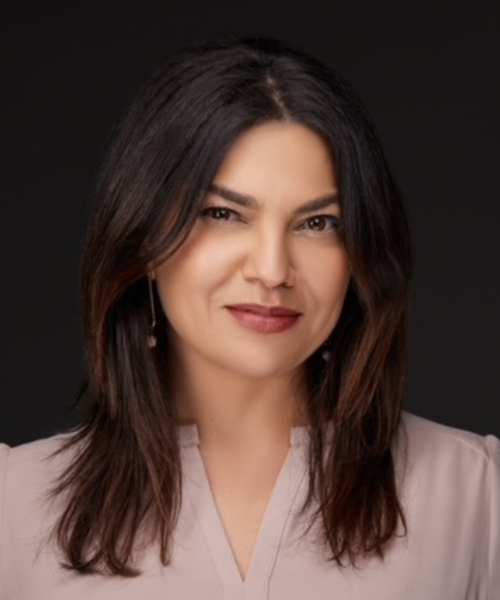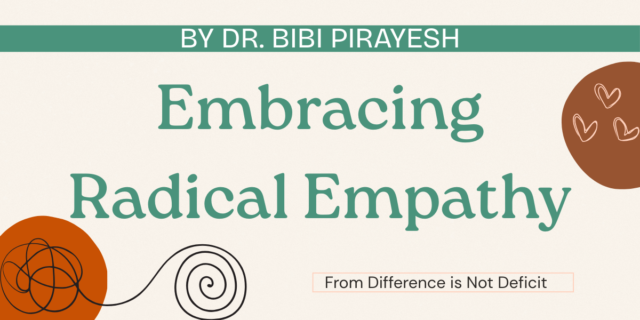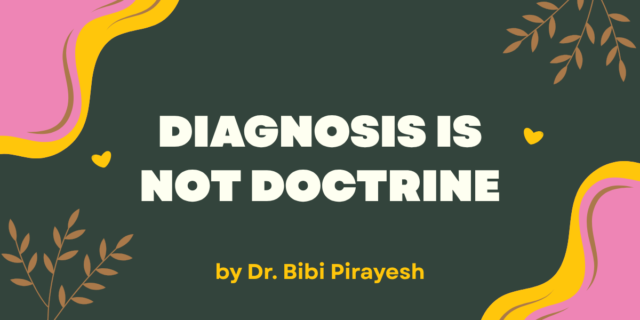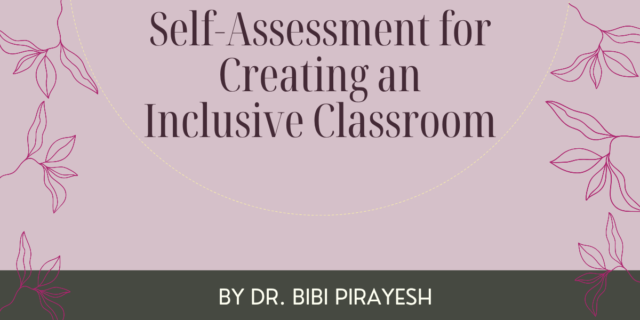
In my 15 years as a learning specialist and educational therapist, working with students with a wide range of learning disabilities (LDs) including ADHD and dyslexia, I’ve come to see that the experiences of neurodiverse children in schools largely depend on how their teachers see and treat difference.
The best teachers understand the importance of centering the child’s needs instead of the curriculum and of freeing the classroom from hierarchical “rules.” Such teachers are rare, but they do exist. They completely change the experiences and trajectory of a child with a learning disability.
Below is a list of what neurodiverse students wish more teachers understood.
1. "I wish teachers knew how hard I'm trying."
I'm convinced that a significant portion of the kids who used to say "My dog ate my homework" actually had LDs, did their homework, and just forgot to turn it in or lost it. What my students with LDs report hearing most is "if you just tried harder…" or "if you just focused...." Despite appearances, most are actually trying very hard to focus and to do their work (that is until they give up and check out). But it takes them far more cognitive energy, having to exert extra effort just for basic functions like sitting up or keeping up with simple directions. I regularly have parents who are confused as to why there is so much homework assigned, not realizing the teacher is expecting an assignment that is taking their child two hours to do to only take 20 minutes.
What to do instead:
Don’t start with the assumption that there is a behavioral issue. In the case of neurodiverse kids, it’s important to stay focused on believing them about their disability. Most teachers have strict rules about how and when assignments need to get turned in and see this as teaching kids executive function (EF). It’s not a choice to not focus, their brain actually can’t do it despite every effort. Understand that when EF is impacted, there has to be grace. Allowing kids to take pictures of assignments and email them in and not penalizing them when things are late should be standard practice.
2. “Don't ask me to ask for help when I don't understand.”
Most kids with LDs feel incredibly vulnerable at school and around their LD. When teachers say, "Just ask!" or “Learn to self-advocate” or “Raise your hand when you’re confused”, they don't understand how hard that is to do. My elementary students worry, “What if everyone laughs? They'll think I'm stupid." Things only get harder as students get older. One of my high school junior clients repeatedly says she’s too scared to ask questions in class because of being called names by her classmates.
What to do instead:
Do the work of creating classroom cultures that are inclusive and comfortable for all kids. Understand that until you have done that difficult work, it is unfair to ask the most vulnerable kids to do the work for you. When in doubt, take the initiative to check in with students privately instead.
3. “I wish they knew it's not just about school work.”
One of my students who has an ADHD diagnosis has regularly been "in trouble" this year for not being able to stop talking in class. We get notes on how disruptive he is all the time, despite me having explained to the school this is a side effect of ADHD and is an impulse control issue, not "bad behavior."
LDs are brain based and the brain is not exclusive to academic learning. There is a lot of emotional regulation, social-emotional maturity, and other mental health issues affected in kids with LDs that is often not understood or addressed even in their testing and educational plans.
What to do instead:
While we are understanding the importance of social emotional learning (SEL), there is still very little talk about how SEL is impacted by learning disability. In fact, most SEL programs are not designed to include neurodiversity. Know that LDs are not limited to academics and adjust your expectations accordingly.
4. “Modifications are not unfair to the other kids in my class.”
Is using a wheelchair or glasses "unfair" to the kids who can walk or see? Is it a privilege to be allowed to compete on a more level playing field? The assumption that fair means everyone has to be able to do the same thing in the same way is so deeply rooted that I have students refuse their accommodations because they are worried “it's cheating.” Allowing one student a different, more appropriate curriculum is not unfair to the other kids. What’s unfair is expecting kids with LDs to do what kids without LDs can do.
What to do instead:
Inclusion is not simply “dumbing down” an assignment so a student with certain challenges can still do it. Understand that our schools are set up against neurodiverse kids. Neurotypical people set the rules, the curriculum, and the standards for all teaching. None of these are created by people with disabilities, for them, or even with them in mind. The system is already unfair to them; know that it is the educators’ job to make it fairer. Inclusion means asking questions like “what is the skill at the core of this assignment and what are different ways to get to that?”
5. “We are not all alike.”
Most services, accommodations, and modifications students are given under the law follow a one size fits all approach. But no two kids with LDs I have ever met are exactly alike. Whereas one of my students might benefit from extra time on a test, for another student, extra time to stare into space is the opposite of helpful. The two students on my roster with dyscalculia (an LD in math) this year require two completely different approaches to learning math because the root cause of their disability differs completely. Yet I regularly hear parents say things like "Well, they said the only thing the school offers for X is Y." Students with LDs feel erased in the expectations, standards, and curriculums that don’t leave space for different needs.
What to do instead:
There is so much talk in education about a "whole child" approach, "differentiating teaching," and "flexible curriculums" but the fact is, we are often not willing to let kids with LDs actually show us what we’re overlooking. The whole point of accommodations is to understand and meet the unique needs of the student, not the diagnosis. Focus less on what is usually prescribed, and more on what will actually allow your student to be successful in your classroom Engage your neurodiverse students in helping to determine appropriate accommodations, understanding that they are experts on their learning needs and can contribute to how we teach. Learning from our students with LDs can make education better for ALL our students.
6. “You don't actually care about me.”
I'm convinced that every student with an LD intuitively feels this petrifying thought. Some actually have explicitly communicated to me that they know the people who claim to care about them the most (parents, teachers, therapists, etc.) actually don’t. It's easy to understand why. Nothing that we do in our system is aimed at fighting for the child, it is always aimed at fighting to get the child to be accepted. I truly believe that this more than anything is what makes everything so challenging. Kids know that if we cared about them, our focus would not be to fix them, or even help THEM, it would be to change ourselves and our inability to let them be who they are.
What to do instead:
What truly holds kids back is not their disability but how that disability is treated in school. I always tell teachers, when making decisions about how to “help” or “include” a “different” child, ask yourself, am I actually fighting for them, or am I fighting to uphold the system that marginalizes them? You might be surprised at how often we are on the wrong side of the fight despite our best intentions.
7. “I am not just my disability.”
It's customary now to start every meeting about a student with their "strengths." I've watched as people go around the room (some struggling) to say a positive thing first but even when they do it’s seldom something my student is really quite excellent at. I hear things like so and so is really sweet, or kind, or hard working. I don’t hear, she’s an incredible artist and we need to do more to help her cultivate her talent. What's frustrating is most of us forget to acknowledge the obvious: the degree of resiliency it takes just to exist in a world not made for you.
What to do instead:
Having an LD doesn't mean kids can't be incredible at things. Take the time to get to know your students and see where they excel and how they work toward that excellence. Find ways to respect and acknowledge their resilience.

Dr. Bibi Pirayesh holds a Bachelor's degree in Neuroscience and Education from the University of Pittsburgh, a Master's degree in Developmental Psychology from Columbia University where her work focused primarily on children’s development of mathematical thinking, and doctorate in Educational Leadership and Social Justice from Loyola Marymount University. She has worked as a learning specialist and educational therapist in private practice for over a decade. While the emphasis of her work is on remediating learning disabilities in a one-on-one setting, she is also a sought after speaker and community advocate for children and families around learning rights. She works with children grades 1-12 and covers a wide range of learning difficulties including dyslexia, ADHD, and spectrum disorders. In 2020, Dr. Pirayesh launched The Difference is Not Deficit Project to help promote the importance of seeing learning disability as a social justice issue. In addition to her private practice and advocacy work, Dr. Pirayesh is also adjunct faculty at Pepperdine University and is involved with a number of service organizations including The Association of Educational Therapists.


